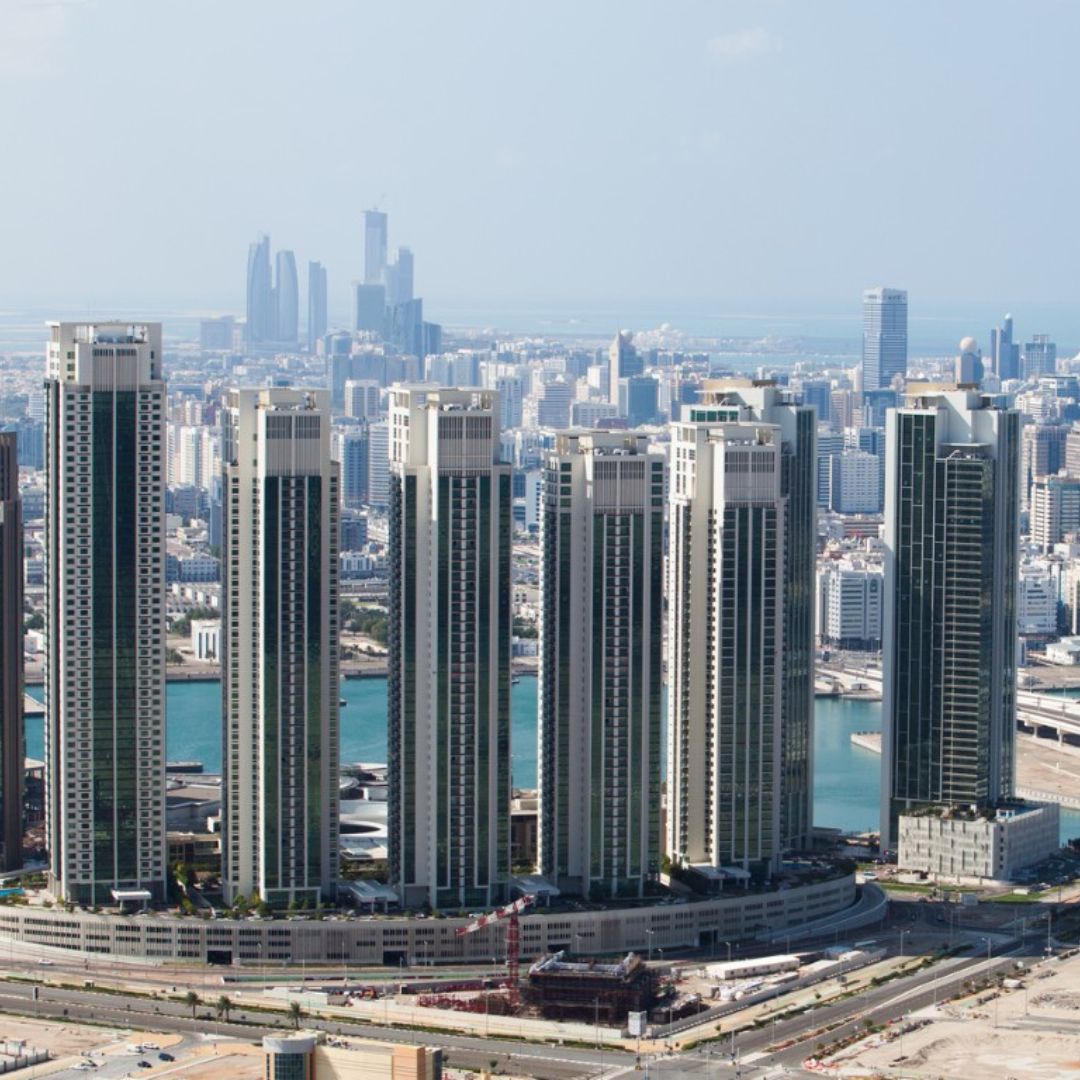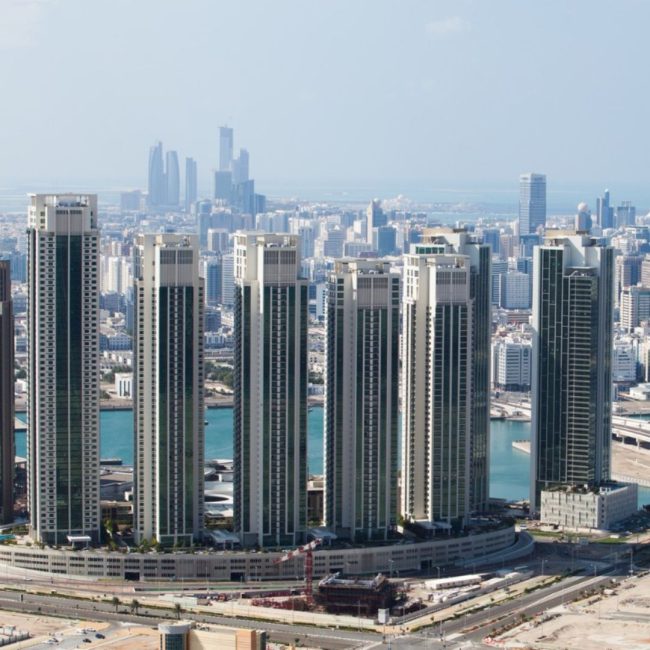
Financing Your Investment in Abu Dhabi
Abu Dhabi, the capital city of the UAE, has become one of the top destinations for real estate investment, offering high rental yields, steady capital growth, and a stable economy. Whether you’re an international investor or a local looking to expand your portfolio, understanding how to finance your investment in Abu Dhabi is crucial.
In this guide, we will explore various financing options available for real estate investors, from bank mortgages to developer financing. We’ll also take a look at the best neighborhoods to invest in, the real estate taxation system in Abu Dhabi, and how buying off-plan properties works.
Additionally, we’ll discuss Abu Dhabi’s investor visa program and the benefits it offers. Let’s dive into how you can finance your real estate investment in Abu Dhabi

Understanding Property Financing in Abu Dhabi
Before starting your property investment journey in Abu Dhabi, it’s essential to understand how the financing system works. The UAE has one of the most structured, transparent, and investor-friendly mortgage frameworks in the region, offering flexible options for residents, expats, and even international buyers. Whether you plan to buy a ready apartment, villa, or an off-plan property, Abu Dhabi’s financing landscape provides multiple pathways designed to suit different income levels, investment goals, and purchase strategies
Who Can Get Property Financing?
Abu Dhabi allows a wide range of buyers to apply for mortgages:
UAE Nationals – easiest approval, highest LTV ratios
UAE Expats – strong approval rate if employed or self-employed
Non-Residents – can also obtain mortgages (with higher down payments)
Investors buying off-plan – depending on developer approval and percentage completion
Key eligibility factors include:
Stable income
Good credit score
Debt-to-income ratio
Approved developers & projects
Key Terms You Must Know
Before applying, understand these essential financing terms:
• LTV (Loan-to-Value Ratio): Percentage of the property value the bank will finance.
• Equity: The amount YOU pay upfront (down payment).
• Mortgage Tenure: Usually up to 25 years depending on age and income.
• Interest Types:
Fixed Rate: Same monthly payment for a fixed period (1–5 years)
Variable Rate: Changes depending on EIBOR market rates
• Pre-Approval: A bank’s confirmation of how much loan you qualify for before you start property shopping.
Required Documents for Getting Financing
- Documents for Residents: Residents must provide their passport, Emirates ID, visa copy, and salary certificate, which help banks verify identity and employment status. A credit report from AECB is required to assess your repayment history and existing liabilities. Banks also ask for 3 to 6 months of bank statements to check income flow, spending habits, and financial stability.
- Documents for Non-Residents: Non-residents need to submit overseas bank statements to prove stable financial activity and savings. Banks also require proof of income, such as employment letters, pay slips, or business ownership documents. In many cases, tax returns are needed to show consistent earnings and confirm long-term financial reliability.
- Property-Related Documents: For off-plan purchases, you must provide the SPA (Sales & Purchase Agreement), which outlines the payment schedule and contractual terms with the developer. For ready properties, banks require the title deed, which confirms the property’s ownership status. These documents allow the bank to verify the asset being financed.
Mortgage Options for Investing in Abu Dhabi
Before discussing financing options, understanding buying property in Abu Dhabi with cryptocurrency highlights why Abu Dhabi is such an attractive market for real estate investment.
Conventional Mortgages
These follow a traditional interest-based structure.
Features:
Fixed or variable interest rates
Up to 75 to 80% financing
Attractive for long-term investors
Islamic Mortgages (Sharia-Compliant)Abu Dhabi?
Popular among both Muslims and non-Muslims.
Main types:
Murabaha: Bank buys the property and sells it to you at an agreed profit
Ijara: Bank leases the house to you until you fully pay
Mortgages for Off-Plan Properties
Banks finance off-plan units once the construction reaches 40% to 60%, depending on the developer.
Requirements:
Developer must be bank-approved
SPA must be signed
Buyer must meet income and credit requirements
Financing Your Investment in Abu Dhabi: Overview
Before discussing financing options, understanding buying property in Abu Dhabi with cryptocurrency highlights why Abu Dhabi is such an attractive market for real estate investment.
Why Invest in Real Estate in Abu Dhabi?
- Economic Stability: Abu Dhabi’s economy is primarily supported by oil and gas but is also diversifying into sectors like tourism, finance, and technology, offering solid long-term growth prospects.
- Tax-Free Income: One of the main attractions of investing in Abu Dhabi is its tax-free environment. There are no property taxes, no capital gains taxes, and no inheritance taxes, making it a highly profitable market for investors.
- High Rental Yields: Abu Dhabi continues to offer strong rental yields, especially in prime areas. The growing demand for residential and commercial properties makes it an ideal market for high returns.
With this backdrop, let’s explore how you can finance your investment in this thriving market.
Down Payment Requirements in Abu Dhabi
Understanding down payment rules is one of the most important steps when planning your property investment. Abu Dhabi follows clear guidelines that vary depending on the buyer’s residency status, the type of property, and whether it is off-plan or ready. These rules help banks manage risk and ensure buyers are financially prepared for long-term commitments. Below is a complete breakdown to help you plan your finances confidently.
For UAE Residents
For UAE residents, including expats, banks provide flexible financing with relatively low upfront costs. First-time buyers can secure a property with just a 20% down payment, while second properties and most investment units typically require 30% due to higher lending risk. For off-plan projects, the down payment ranges between 20 and 40%, depending on the developer, project stage, and bank approval.
For Non-Residents
For non-residents, Abu Dhabi still offers property financing, but the terms are stricter compared to UAE residents. International buyers typically need to pay a 40 to 50% down payment because banks require higher equity from applicants without local credit history.
Off-Plan vs Ready Properties
When comparing off-plan and ready properties, the down payment structure works differently for each. Ready properties are easier to finance because banks can issue mortgages immediately after valuation, allowing faster processing and quicker access to rental income. Off-plan properties, on the other hand, follow a construction-linked payment plan, where buyers pay in stages such as 10% at booking and 10% at foundation.
Real Estate Financing Options in Abu Dhabi
Living in Abu Dhabi, real estate financing options are diverse, catering to both local and international investors. Buyers can choose traditional bank mortgages with competitive interest rates or developer-led payment plans offering flexibility during construction phases. Islamic financing is also widely available, providing Sharia-compliant solutions. These options make property ownership in Abu Dhabi more accessible and attractive for different investor profiles.
1. Bank Mortgages
For investors looking to purchase property in Abu Dhabi, obtaining a mortgage from a local bank is one of the most common methods of financing. Both residents and non-residents are eligible to apply for mortgages, though the requirements may vary.
Eligibility for Bank Mortgages
- For Non-Residents: Non-resident investors are generally required to make a larger down payment, typically between 25% and 35% of the property value.
- Loan-to-Value (LTV): Banks in Abu Dhabi offer LTV ratios of up to 75% for residents, while non-residents may face more stringent conditions.
- Interest Rates: Mortgages in Abu Dhabi typically have fixed or variable interest rates, ranging from 3% to 4% annually, depending on the bank and the type of loan.
- Documentation Required: Proof of income, employment, and a clean credit history are essential for mortgage approval.
2. Developer Financing
Another popular option for financing your real estate investment in Abu Dhabi is through developer financing. This is especially common with off-plan properties.
Advantages of Developer Financing
- Flexible Payment Plans: Developers often offer flexible payment options, such as paying in installments during the construction phase.
- Lower Initial Costs: Developer financing often requires a smaller down payment compared to bank mortgages, which can make it easier to enter the market.
- Interest-Free Options: Some developers offer interest-free payment schemes for certain off-plan properties, which can reduce the overall cost of your investment.
Things to Consider
- Higher Overall Cost: While developer financing may offer more flexible terms, the interest rates on some plans may be higher than traditional bank mortgages.
- Risk of Delays: Off-plan properties are subject to construction delays, which could affect when you start earning rental income
3. Cash Purchase
For those with the financial capability, paying cash for a property in Abu Dhabi is the simplest and most direct financing option. There are several advantages to making a cash purchase:
- No Interest Payments: By paying upfront, you avoid interest fees that can add up over time.
- No Financing Approval Needed: A cash purchase eliminates the need for mortgage approval, making the buying process quicker and smoother.
- Strong Negotiating Power: Sellers may offer discounts or better terms to buyers who pay in cash, providing an opportunity for better deals.
While not feasible for every investor, a cash purchase can offer significant advantages in terms of cost and speed.
Step-by-Step: How to Finance Your Property in Abu Dhabi 2025
Financing a property in Abu Dhabi may feel complex, but the process is actually straightforward when broken into clear steps. Whether you are a UAE resident, expat, or international investor, these four stages will guide you from the initial approval all the way to final transfer.
Step 1: Get Mortgage Pre-Approval
Pre-approval is the bank’s initial confirmation of how much they are willing to lend you based on your income, credit score, and financial history. It helps you avoid looking at properties outside your budget and speeds up the buying process. Most banks give a validity of 60 to 90 days, allowing you enough time to search for the right property.
Step 2: Choose a Property
Once you know your borrowing limit, you can choose between off-plan or ready units depending on your investment goals. Off-plan properties offer flexible payment plans and lower upfront costs, while ready units are perfect for buyers seeking immediate rental returns. Always ensure the project is bank-approved, otherwise your mortgage cannot be processed.
Step 3: Final Bank Approval
After selecting the property, the bank performs a formal valuation to determine its real market value and assess risk. Based on this valuation, the bank confirms your final LTV (Loan-to-Value) ratio and adjusts the loan amount if needed. Once everything is verified, the bank issues a Final Offer Letter (FOL), which outlines your loan terms clearly.
Step 4: Signing Mortgage & Transfer
In the final step, you sign the mortgage agreement with the bank and complete the financial documentation. After this, the property transfer is registered at Abu Dhabi Municipality, where the title deed is issued in your name and the mortgage is recorded. Once the transfer is complete, the property officially becomes yours.
Where to Invest in Abu Dhabi in 2025
The location of your investment property plays a crucial role in determining your returns. Let’s explore some of the best neighborhoods to invest in Abu Dhabi in 2025.
1. Saadiyat Island
Saadiyat Island is a cultural and luxury hub of Abu Dhabi, offering a blend of high-end residential properties and cultural attractions like the Louvre Abu Dhabi. The demand for luxury properties is expected to remain high in this area, making it a solid investment choice.
- Key Features: High-end villas and apartments, cultural landmarks, beachfront properties.
- Rental Yield Potential: Strong potential for long-term capital appreciation and rental yields from expatriates and high-net-worth individuals.
2. Yas Island
Yas Island is a major entertainment destination, home to attractions like Ferrari World and Yas Marina Circuit. It’s a thriving tourist and residential hub, which ensures steady demand for rental properties.
- Key Features: Entertainment venues, luxury resorts, waterfront properties.
- Rental Yield Potential: Excellent for short-term rentals and tourism-driven investments.
3. Al Reem Island
Al Reem Island is known for its affordable residential properties and its proximity to Abu Dhabi’s business and financial districts. It has become increasingly popular among families and young professionals, making it a good option for rental income.
- Key Features: Affordable apartments, close to business hubs.
- Rental Yield Potential: Strong demand for both short-term and long-term rentals due to its location and affordability.
Investing Without a Mortgage
Many buyers believe that property investment is only possible through bank financing, but in Abu Dhabi, that’s no longer the case. The off-plan market has opened the door for investors to enter real estate without taking a mortgage, thanks to flexible payment plans, extended post-handover schedules, and low upfront costs. This makes property ownership far more accessible, especially for cash buyers or those who prefer to avoid long-term bank commitments.
Cash Purchases
Buying with cash is ideal for investors who want full ownership without monthly installments or interest costs. It makes sense when you want faster transactions, higher negotiation power, or to secure units in high-demand projects. Developers often offer special discounts or reduced fees for cash buyers, allowing you to save more upfront and increase overall ROI.
Private Financing
Many developers offer internal payment plans where buyers can pay in installments during construction or even post-handover. This is a flexible alternative to traditional mortgages, especially for off-plan projects. Some investors also consider investor-to-investor financing, where payment terms are privately agreed — useful for quick deals or resale opportunities with customized schedules.
Buy Off-Plan Property in Abu Dhabi: Is It Worth It?
Buying off-plan property in Abu Dhabi can be a smart investment for those seeking lower entry prices and strong potential for capital appreciation. Developers often offer attractive payment plans, making it easier to manage cash flow. However, investors should carefully evaluate the developer’s track record and project delivery timelines. With the right due diligence, off-plan properties can deliver excellent long-term value.
The Benefits of Off-Plan Property Investments
Off-plan properties are still a popular investment option in Abu Dhabi, especially for investors who are looking for capital growth over time.
- Lower Initial Costs: Off-plan properties are usually sold at a lower price than completed properties, giving investors the chance to enter the market at a more affordable rate.
- Flexible Payment Terms: Developers often offer installment plans during the construction phase, which can make the investment more manageable.
- Capital Appreciation: As the property is completed and the surrounding area develops, the value of the property may increase significantly.
Risks of Off-Plan Property Investments
- Delays in Completion: There is always a risk that the property may be completed later than expected.
- Market Fluctuations: Property values can fluctuate during the construction phase, which could affect the investment value upon completion.
Best Banks for Property Financing in Abu Dhabi (2025)
In 2025, several UAE banks stand out for offering competitive mortgage products for residents, expats, and international investors. Below is a breakdown of the top-performing banks and what makes each one a strong option for property buyers.
First Abu Dhabi Bank (FAB)
- Strengths: As the largest bank in the UAE by assets, FAB is very reliable and has strong financial capacity. Reuters
- Why choose it: Competitive mortgage options for both conventional and Islamic financing; good for high-income investors or long-term borrowers.
Abu Dhabi Commercial Bank (ADCB)
Strengths: Very broad mortgage offering (both fixed and variable), and strong presence in Abu Dhabi.
Why choose it: Ideal for both first-time buyers and seasoned investors; good LTVs and flexible mortgage terms.
Abu Dhabi Islamic Bank (ADIB)
Strengths: Sharia-compliant financing (Islamic mortgages like Murabaha and Ijara).
Why choose it: Perfect for investors wanting halal financing; ADIB has good experience in structured Islamic home financing.
Investor Visa in Abu Dhabi
The Investor Visa in Abu Dhabi offers foreign investors the opportunity to reside in the UAE while benefiting from its thriving economy and tax-friendly environment. This visa is typically granted to individuals who invest in real estate, businesses, or other qualifying sectors. It provides long-term residency options, often ranging from 5 to 10 years, depending on the investment value. For global investors, it is a gateway to stability, lifestyle benefits, and business opportunities in the capital.
How to Obtain an Investor Visa in Abu Dhabi
Abu Dhabi offers an investor visa to foreign nationals who invest in real estate in the UAE. This visa allows investors to reside in the country while enjoying the benefits of their investment.
Eligibility Requirements
- Minimum Investment: To qualify for an investor visa, you need to invest a minimum of AED 1 million in real estate.
- Property Location: The property must be in a designated freehold area in Abu Dhabi.
- Other Requirements: You must meet health and financial requirements, and you’ll need to pass a background check.
Benefits of the Investor Visa
- Residency: The visa allows investors and their immediate family members to live in Abu Dhabi.
- Work Opportunities: With an investor visa, you are allowed to work and manage your business in the UAE.
Real Estate Taxation in Abu Dhabi
Real estate taxation in Abu Dhabi is highly attractive for investors, as there is no personal income tax or capital gains tax on property sales. However, buyers should be aware of transaction-related fees such as the property registration fee, typically around 2% of the purchase price. Rental income is also not subject to income tax, making Abu Dhabi a favorable environment for landlords. This tax-friendly framework enhances overall returns and strengthens the city’s appeal as a global investment hub.
The Tax-Friendly Environment for Investors
Abu Dhabi is known for its tax-friendly environment, which makes it an attractive location for real estate investments.
- No Property Tax: There is no property tax in Abu Dhabi, meaning investors can earn rental income without worrying about deductions for taxes.
- No Capital Gains Tax: When you sell a property, you won’t have to pay capital gains tax on the profit, which allows for greater returns on investment.
- No Inheritance Tax: Investors can pass down their property to heirs without incurring inheritance taxes, making it a long-term wealth-building opportunity.
Common Mistakes Investors Should Avoid
- Ignoring hidden fees: Many buyers focus only on the property price and forget about valuation fees, processing charges, transfer fees, and insurance costs. These extra expenses can add up quickly and affect your total budget. Always ask the bank and agent for a full fee breakdown before committing.
- Choosing the wrong mortgage type: Picking between fixed, variable, or Islamic financing without understanding the differences can lead to higher payments later. Fixed rates offer stability, while variable rates may fluctuate with the market. Make sure the mortgage you choose matches your long-term financial plans.
- Not checking bank approval for off-plan: Not all banks finance every developer or off-plan project. If the project isn’t on the bank’s approved list, your mortgage may be rejected after you’ve paid the initial booking amount. Always confirm bank approval before signing the SPA or making any payment.
Financing your investment in Abu Dhabi offers several options, from traditional mortgages to flexible developer financing. The city’s tax-free environment, strong rental yields, and favorable investment conditions make it an attractive destination for real estate investors. By choosing the right neighborhood, understanding financing options, and leveraging the benefits of an investor visa, you can maximize your return on investment.
If you’re ready to explore investment opportunities in Abu Dhabi, check out Opportunities in Abu Dhabi and use our Investment Tool to guide you in making informed investment decisions.
Related Posts

Focus on the Most Active Developers in Abu Dhabi in 2025

Buying Property in Abu Dubai with Cryptocurrency

Service Charges in Dubai & Abu Dhabi 2025.

Top Abu Dhabi Developers in 2025

Buying Property in Abu Dhabi with Cryptocurrency

Rental Yield in Abu Dhabi: Maximizing Your Property Investment

A Complete Guide to Investor Visa in Abu Dhabi

Why Buy Off-Plan Property in Abu Dhabi

